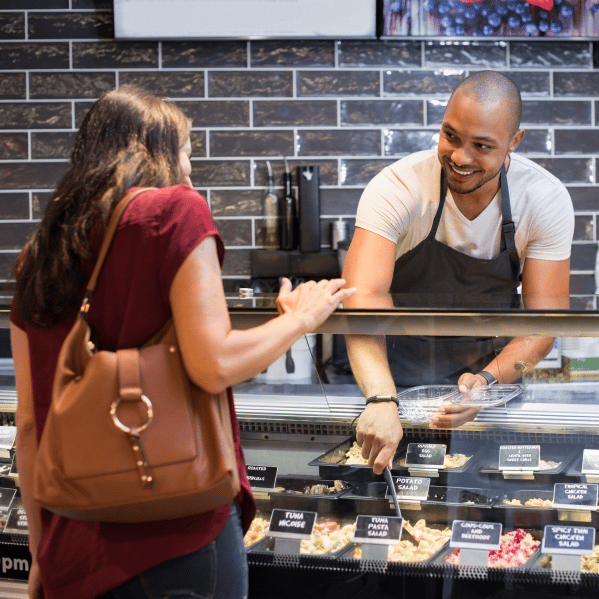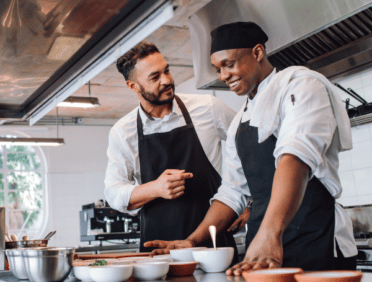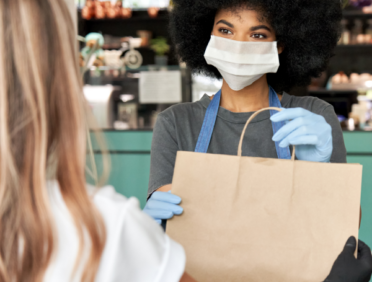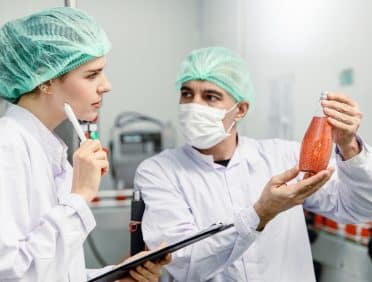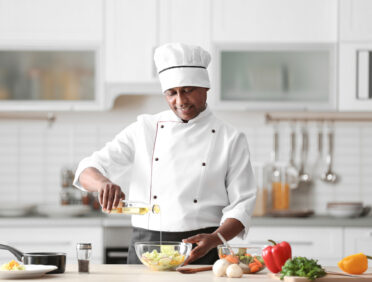Even with the issues that we have faced over the past few years, food and beverage services still remain one of the biggest industries out there. Not only is it a busy industry with lots of people choosing to work within it, but food and beverage services also boast a multitude of different groups and smaller sectors within it too.
To help you to understand more about how they work and what you may need to know before you choose to work within this sector, we have put together some more information that you are going to need to know.
What are the functions of food and beverage services?
The main function of food and beverage services is to provide and deliver food and beverages to customers at a certain location. This could be a hotel, a restaurant or even somewhere such as a hospital.
The drinks that are served are not always alcoholic. However, there is always going to be a large proportion of this industry that will be around alcohol and how it is served.
Commercial food and beverage services
Commercial food and beverage services are there to make money from what they serve to the customer. They are going to be focused not only on cost and profit but also on the overall service and experience that the customers have. After all, they want people to come back for more time and time again.
Non-commercial food and beverage services
Non-commercial food and beverage services are those that are not there to make money as much. They are still cost-orientated, but this is because they are usually run as a part of an educational institution or perhaps a charitable organisation.
Food and beverage services
There are a few different approaches that all make up the food and beverage services. These are:
- Assisted service
- Table service
- Self-service
- Single point service
- Specialised service
Let’s take a look at them in more detail.
Assisted service
The most common type of assisted service is a buffet type of restaurant. This is where a customer will help themself to food that they want to buy (and eat); however, there will be staff around to help and to ensure that the food counter is well-stocked.
The staff will also take away dirty plates when they are used and, more often than not, will deliver the drinks to the table as a part of the dining experience.
Table Service
As the name suggests, the idea of table service is that the food and drink that a customer wants to buy is ordered and served to them directly to their table. This is a common approach for many restaurants to take and is the type of food and beverage service that many of us will be used to.
Self service
The complete opposite of table service is self-service. Here you will not ask a bartender or a waiter to pour your drink or deliver your food; you will do it all yourself. This is the most commonly seen approach for fast-food restaurants. Staff within self-service restaurants and food-based services will stay on fixed counters and will not move around the floor as they may in a standard table service restaurant.
Single point service
When you order from a single-point service, you will order, pay and collect your food all from one point. The food that has been served can be eaten on premises or taken away if the customer prefers to do this.
These are usually smaller businesses that have a lower footfall of customers, as this allows them to take their orders and money and serve them their food in one fluid motion.
Specialised Service
A specialised service is everything else that might not fit within the above groups. Some of the different specialised services that you may see are a grill room, tray service and trolley service.
Food and beverage catering services
There are lots of places whereby you may see some form of food and beverage catering services. Some of them are obvious, whereas some of them are less obvious or that you might not see very often.
Airlines
The main function of airlines is to transport passengers from one place to another quickly and safely. However, it is also the responsibility of the cabin crew staff to provide a dedicated service to all the customers who have chosen to fly with that particular airline.
This includes serving them food and drink whilst they are on the flight. The food that is served within an aircraft is often basic, but it should still be served hot (if needed) and be of a high enough quality to keep customers happy.
Banqueting services
A banqueting service is designed to provide a catering service but on a grander scale. More often than not, you will find a banqueting service providing the food for special events, such as weddings and birthday parties.
Some banqueting services may provide specialist types of food, such as certain cuisines or be tailored around themed nights.
Catering
Another form of large-scale event food and beverage service is catering. Catering is very similar to banqueting services. However, they usually have a more simplistic approach to the types of food that they provide.
You may find catering services at corporate events, such as team-building. However, they can also work for social events too. You may even find catering provided as a part of office delivery services.
Cruise lines
When you are floating in the middle of the ocean, then the food that is onboard is the only food on offer. This means that cruise lines are in charge of their own food and beverage services. The food that is made on served on cruise lines is all prepared and cooked on board and is a part of the entire cruise ship experience.
Many people believe that cruise lines provide a high-quality level of food during their holidays, and this is usually provided across a variety of food outlets and restaurants.
Fast food outlets
Whilst fast food outlets might not be thought of as serving the highest quality of food, that doesn’t necessarily have to be true. They not only provide food that is popular for a quick fix, but they are well-known for having a service that is fast-paced.
Everyone who works in a fast food outlet has a key part in the entire process, and they all need to work together to ensure that every single order that is sent out is completed as quickly as possible and served in a way that means that it won’t be returned.
Hospitals
Food in hospitals doesn’t always get the best reviews. However, it is made to be easy to create, low on cost and easy to mass-produce for all the patients who are staying in the hospital. Food within hospitals is prepared and cooked on-site and is usually made by a small team in a kitchen before being delivered all around the wards by dedicated staff members.
Hotels
Many hotels across the world have a restaurant (or two) as a part of their accommodation. These restaurants are able to provide breakfast, lunch and dinner and ensure that all guests staying in the hotel have delicious food to eat on-site without having to go too far outside of the area.
Hotels can also offer room service as a part of their food and beverage provision. This usually has a small menu of finger food style dishes that can be easily delivered to rooms and then be eaten within the room by the guest.
Mobile catering service
A mobile catering service is usually a smaller, independent food business that is run and owned by one or two people. That said, they can be a chain if they start to take off.
A mobile catering service can be stationary, which means that they are based in one place, but able to move around as they wish, or they may travel around an area on a daily basis.
Some examples of mobile catering services include ice cream and desserts, coffee vans and even those that transport breakfast items to offices and industrial estates.
Prison
All of the aspects of prison life are kept within the prison premises. This means that the food and drink that is served to inmates are created on-site. Prisons don’t have extensive kitchens; they often look like catering or commercial kitchens.
The food that is made in prisons is made in large quantities, and the emphasis is on providing meals that are going to be nutritional as possible, but that is also low in cost.
Restaurants
The most common food and beverage service that you may be used to seeing are restaurants. These come in all shapes, sizes and types, and they can be independently run or as a part of a larger chain.
Restaurants will have an eye on their profits, of course, as they want to make money. But, they will also want to provide any customers that visit them with delicious food that keeps them coming back time and time again. As well as a great level of service too.
Retail stores
Retail stores also provide food and beverages on-site. This could be in the form of a supermarket, a cafe, or perhaps a bakery that offers up food to customers. You may also be able to buy food from a smaller store, such as one that sells alcoholic beverages and also self-serve foods too.
School and colleges
Schools and colleges provide food to the students that are there studying. Some of them cook their food on-site, whilst others have it delivered by larger, off-site catering companies. For those that cook the food on-site, they are going to want to ensure that they are providing the students with food that is healthy and nutritious.
That said, one of the focal points of food and beverage services within a school or college is costs. You want to keep costs as low as possible whilst still being able to provide food that the students are going to want to eat.
Transport railway catering
Trains provide food within their service, transporting passengers across the UK. More often than not, the focus and emphasis within a train are placed on the beverage side of things rather than the food.
Food that is served on trains is limited to a few hot items, usually sandwiches, as this is what is small enough to be stored and heated up on the train. However, there are usually a wide variety of snacks and confectionery items that are sold on the train directly to the passengers.
Whilst it may seem easy to work in hospitality, the truth is, you need lots of skills and knowledge in order to really excel in this type of role.
In order to do this, you are going to need to have access to a high level of training, which in turn will help every person who works within the industry to be the very best that they can be.
To download a .pdf of this blog, please click here
